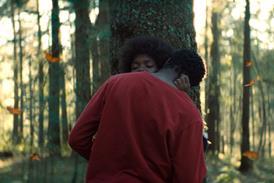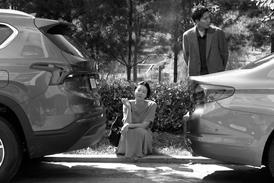- News
- Reviews
- Features
- Festivals
- Box Office
- Awards
 In conversation: Pippa Harris and Liza Marshall on producing ‘Hamnet’, why film industry “is in a strange place”
In conversation: Pippa Harris and Liza Marshall on producing ‘Hamnet’, why film industry “is in a strange place” How ‘The Perfect Neighbor’ tells a real-life Florida tragedy through two years of police bodycam footage
How ‘The Perfect Neighbor’ tells a real-life Florida tragedy through two years of police bodycam footage Skinny‑dipping, prosthetic penises and a last-minute afterparty: Nine memorable moments in the ‘Pillion’ journey
Skinny‑dipping, prosthetic penises and a last-minute afterparty: Nine memorable moments in the ‘Pillion’ journey
- Subscribe

Subscribe to Screen International
- Monthly print editions
- Awards season weeklies
- Stars of Tomorrow and exclusive supplements
- Over 16 years of archived content
- Berlin jury grid
- The Screen Podcast
‘Happening’: Venice Review
By Lee Marshall2021-09-06T14:45:00

Source: Wild Bunch
A young French student grows increasingly desperate to secure a backstreet abortion in Audrey Diwan’s harrowing drama
SIGN IN if you have an account
Do you want to keep reading?
Register for free access to five articles a month

Subscribe today and unlock access to:
- Unlimited film & TV news, reviews and analysis on Screendaily.com
- All print and/or digital editions of Screen magazine
- Breaking news alerts sent straight to your inbox
- Digital festival and market dailies
- Weekly awards magazines
Access premium content Subscribe today
If you have an account you can SIGN IN now
Subscribe to Screen International
Screen International is the essential resource for the international film industry. Subscribe now for monthly editions, awards season weeklies, access to the Screen International archive and supplements including Stars of Tomorrow and World of Locations.
Find out moreSite powered by Webvision Cloud














